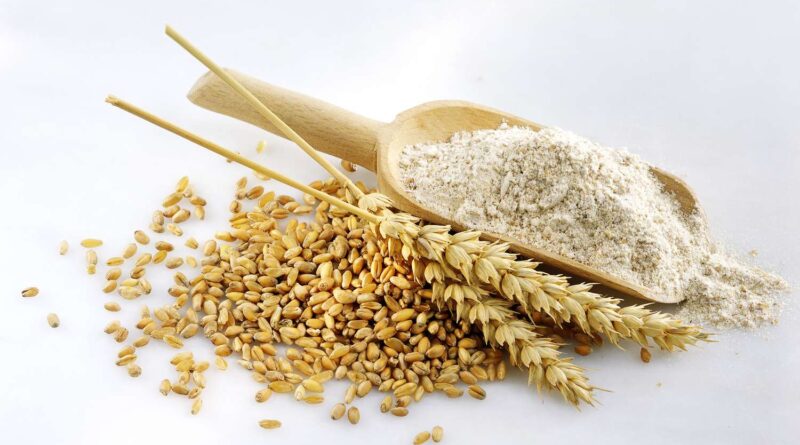Bangladesh: Flour, wheat flour still dearer despite global wheat price plunge
By Omar Faruque
Before the Russia-Ukraine war in February last year, a 2kg packet of wheat flour was available at Tk90 and flour at Tk100-105 in the local market, but the prices went up to Tk120 and Tk140, respectively, a month after the war had begun.
At that time, traders attributed the rapid price rise to the costly global wheat. Russia and Ukraine are two of the world’s largest wheat producers. After the war had started, prices of several food crops including wheat, corn, and other items soared worldwide.
However, since then, the price of wheat has come down significantly on the international market but the prices of wheat flour and flour remain the same now in Bangladesh.
According to IndexMundi, a US-based comprehensive data portal, the current booking price for wheat (US-HRW-soft) is $229.46 per tonne in the global market. In May last year, the price rose to $446.66 per tonne due to the war effect.
However, before the war, the price of wheat per tonne in the global market was $339.35. So, the current price is about $109 less than the pre-war price.
Wheat is the second major food grain of Bangladesh. Against the annual demand of 70 lakh tonnes, the country produces only 10-12 lakh tonnes.
Data from the Wall Street Journal also shows that the price of wheat rose to $12 per bushel (about 25.40kg) after the war, which has now dropped to $6.
However, cheaper global wheat failed to affect the domestic market.
Before the war, in the country’s largest wholesale market Khatunganj, Chattogram, a maund (37.32 kg) of soft wheat was sold for Tk900. In June-July last year, the price rose to a record high Tk1,900.
However, the price per maund of wheat in Khatunganj at present decreased slightly to Tk1,500 per maund, which does not reflect the global price fall.
Alamgir Parvez, a wheat trader and owner of RM Traders in Khatunganj, told The Business Standard, “Though global prices of wheat fell drastically, local importing companies did not reduce the prices to that extent. Again, while the price of wheat has decreased slightly, the price of wheat flour has not decreased at all.”
According to Trading Corporation of Bangladesh (TCB) data, wheat packaged flour is now being sold at Tk54-60 per kg, depending on the quality. The price was Tk55-58 at the same time a year ago.
Pradeep Karan, deputy general manager (Sales) of Citigroup, explains why the wheat and wheat products are still costly in the market: “The wheat currently in the market was bought at least two months ago when the price was higher than it is now.”
He, however, said, “The price has started to come down and will go down further.”
The Citigroup official admitted that retail prices of packaged wheat flour and flour are still unchanged.
TCB data shows that the retail price of loose wheat flour has decreased by 15.53% compared to last year and is being sold at Tk45 per kg, which was Tk48-55 this time last year.
Taslim Shahriar, deputy general manager (Accounts) of Meghna Group of Industries, said, “We have reduced the price of wheat flour in the domestic market as the booking price of wheat has decreased in the international market. For example, at the wholesale level, we are currently selling a 50kg bag of wheat flour at Tk2,000 (Tk40 per kg) and flour at Tk2,700 (Tk54 per kg). The prices stood at Tk2,700 for wheat flour and Tk3,500 for flour in May last year.
“It is regrettable that the prices have not been reduced at the retail level even after the reduction at the wholesale level.”
Aside from wheat flour and flour, many bakery products’ prices remain high after hikes last year.
Shafiul Islam, director of TK Group, said, “We have also adjusted the price of wheat flour in line with international market prices. We are now selling packaged wheat flour at Tk44.80 and flour at Tk56 per kg. But we do not understand why the price is not being reduced at the consumer level.”
Some traders said consumers cannot reap the benefit of the global price drop at the local level due to various reasons including the rising dollar price and freight charges.
SM Nazer Hossain, vice president of the Consumer Association of Bangladesh (CAB), said, “It is a complete government failure. When the price increases in the international market, the importers and manufacturers raise the prices of the products at once ignoring all the laws of the country.
“Even the government was forced to raise the prices of wheat products at that time. But, for the last five to six months, the price of essential commodities such as wheat has halved in the international market, but the government has not taken any action in this regard.”
This article has been republished from The Business Standard.

